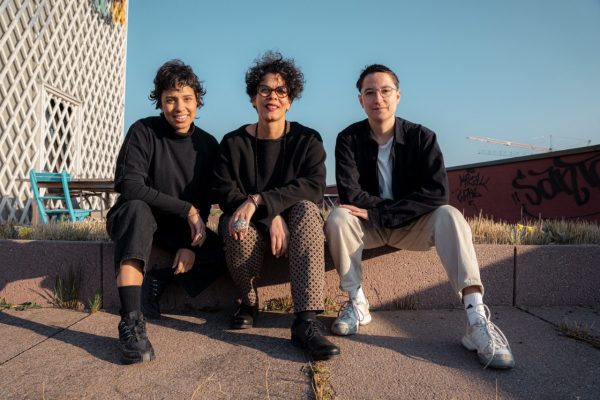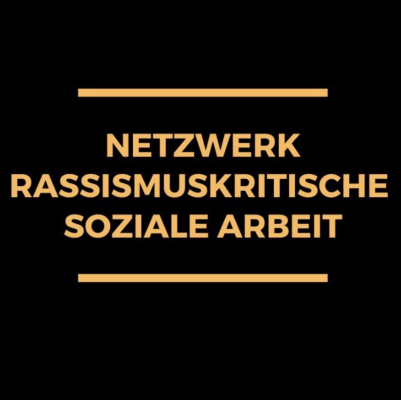
- Diese Veranstaltung hat bereits stattgefunden.
Rassismuskritische Schulkultur
23. Oktober 2022 @ 16:30 - 18:00
mit Mani Owzar & Tilo Bur & RAKSA
Veranstaltung auf Deutsch/ Event in German
no translation planned, for further infos click here
zur Veranstaltung:
Teil 1
Wie gelingt es, rassismuskritisch zu unterrichten und eine rassismussensible Schule zu gestalten? In diesem Workshop möchten wir uns mit diesen und weiteren Fragen beschäftigen. Wir setzen uns mit unserer eigenen Erfahrung auseinander und diskutieren Beispiele. Als Basis dient unser Buch „No to racism. Grundlagen für eine rassismuskritische Schulkultur“, welches im November veröffentlicht wird.
Teil 2
Das RAKSA-Netzwerk entstand aus einer Gruppe Sozialarbeitende, die von Rassismus betroffen sind und die Notwendigkeit sahen, ihre Erfahrungen aus dem Hochschul- und Praxiskontext zu in einem Safer Space zu teilen. Es wurde schnell deutlich, dass die fehlende Auseinandersetzung mit dem Thema Rassismus im Hochschulkontext negative Auswirkungen auf die Praxis hat. In einem umfassenden und partizipativen Prozess wurde daraufhin ein Appell verfasst und an alle Hochschulen für Soziale Arbeit der Deutschschweiz verschickt. Der RAKSA-Appell fordert eine Weiterentwicklung der rassismuskritischen Lehr- und Lernkultur an Schweizer Fachhochschulen und Hochschulen für Soziale Arbeit.
Widerstand ist notwendig, um Veränderungsprozesse anzustossen. Dies wirft die Frage auf, wie und wo organisierter Widerstand stattfinden kann. Dieser Input befasst sich mit der Bedeutung von Widerstand in Safer Spaces am Beispiel des RAKSA-Appells und der Frage, wie notwendig Safer Spaces für organisierten Widerstand ist.
Gruppen- und Personenbeschriebe

Tilo Bur ist Lehrperson und Mitgründer*in von Diversum. Bestrebt, dass Begriffe wie Chancengleichkeit und Inklusion nicht leere Begriffe bleiben, setzt Tilo Bur sich dafür ein, dass Schulen für die Entwicklung aller Kinder Raum zu bieten vermögen. Tilo Bur setzt sich besonders mit verschiedenen Ausschlussmechanismen auseinander, um ihnen nachhaltig entgegenwirken zu können.
Mani Owzar ist Mitgründer*in von Diversum, einem Verein für rassismuskritisches Denken. Mani Owzar hat einen Bachelor in Volkswirtschaftslehre und einen Masterabschluss in Weltgesellschaft und Weltpolitik. Heute arbeitet Mani Owzar als Lehrperson für Allgemeinbildung am Zentrum für Ausbildung im Gesundheitswesen (ZAG) in Winterthur.

Das Netzwerk Rassismuskritische Soziale Arbeit (RAKSA) ist eine Plattform für Sozialtätige mit Rassismuserfahrung. Insbesondere für Sozialpädagog*innen, Soziokulturelle Animator*innen und Sozialarbeiter*innen. Im Fokus stehen ein regelmässiger Austausch und die Auseinandersetzung mit rassismuskritischen Themen im Hochschul- und Praxisalltag der Sozialen Arbeit im Rahmen eines Safe Space. Strukturelle Missstände, Diskriminierung und Rassismus sollen erkannt und benannt werden.
Zur Website: www.netzwerk-rassismuskritische-sozialearbeit.ch
english description
what
racism-critical school cultur
Part 1
How is it possible to teach in a racism-critical way and to develop a racism-sensitive school? In this workshop, we would like to address these and other questions. We will look at our own experience and discuss examples. As a basis we will use our book “No to racism. Grundlagen für eine rassismuskritische Schulkultur”, which will be published in November.
Part 2
The “Netzwerk Rassismuskritische Soziale Arbeit” (RAKSA) is a platform for social workers who experience racism. In particular for social educators, socio-cultural animators and social workers. The focus is on a regular exchange and the discussion of racism-critical topics in the university and everyday practice of social work within the framework of a safe space. Structural grievances, discrimination and racism should be recognised and addressed.
The RAKSA network emerged from a group of social workers who have been affected by racism and saw the need to share their experiences from the university and practical context in a safer space. It quickly became clear that the absence of addressing the issue of racism in the higher education context had a negative impact on practice. In a comprehensive and participatory process, an appeal was then drafted and sent to all universities of social work in German-speaking Switzerland. The RAKSA appeal calls for a further development of the racism-critical teaching and learning culture at Swiss universities of applied sciences and universities of social work.
Resistance is necessary to initiate processes of change. This raises the question of how and where organised resistance can take place. This input deals with the meaning of resistance in safer spaces using the example of the RAKSA appeal and the question of how necessary safer spaces are for organised resistance.
who
Tilo Bur is a teacher and co-founder of Diversum. Tilo Bur is committed to ensuring that schools are able to offer space for the development of all children. Tilo Bur is particularly focused on various exclusion mechanisms in order to be able to counteract them in the long term.
Mani Owzar is co-founder of Diversum, an association for critical thinking on racism. After a bachelor’s degree in economics and a master’s degree in global society and politics, Mani Owzar now works as a general education teacher at the Centre for Health Education (ZAG).
The “Netzwerk Rassismuskritische Soziale Arbeit” (RAKSA) is a platform for social workers who experience racism. In particular for social educators, socio-cultural animators and social workers. The focus is on a regular exchange and the discussion of racism-critical topics in the university and everyday practice of social work within the framework of a safe space. Structural grievances, discrimination and racism should be recognised and addressed
Details
- Datum:
- 23. Oktober 2022
- Zeit:
-
16:30 - 18:00
Veranstaltungsort
- Elisabeth Atelier
-
Seestrasse 395
Rote Fabrik, 8030 Switzerland + Google Karte